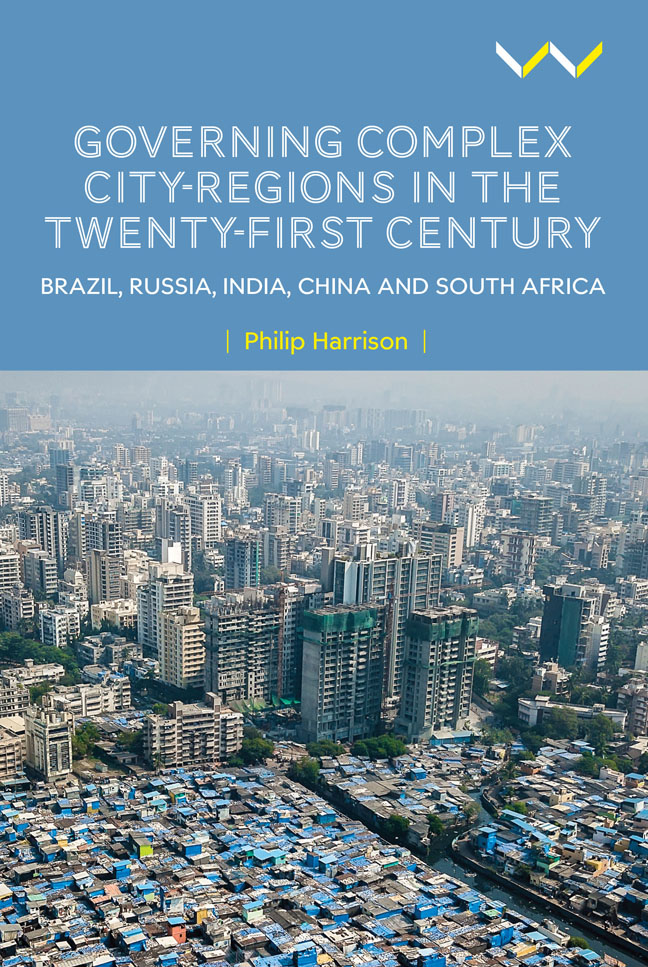 Governing Complex City-Regions in the Twenty-First Century
Governing Complex City-Regions in the Twenty-First Century Book contents
- Frontmatter
- Contents
- List of maps
- Preface
- Acknowledgements
- Acronyms
- Cartography
- Introduction: Exploring hyper-complexity
- 1 The global view: The city-region as material form, discourse and governmental practice
- 2 The governance of Brazil’s metropolitan regions
- 3 The governance of Russia’s urban agglomerations
- 4 Metropolitan and city-region governance in India
- 5 Governing the city clusters of China
- 6 City-region governance in South Africa
- 7 Concluding and comparative insights
- References
- Index
7 - Concluding and comparative insights
Published online by Cambridge University Press: 02 March 2024
- Frontmatter
- Contents
- List of maps
- Preface
- Acknowledgements
- Acronyms
- Cartography
- Introduction: Exploring hyper-complexity
- 1 The global view: The city-region as material form, discourse and governmental practice
- 2 The governance of Brazil’s metropolitan regions
- 3 The governance of Russia’s urban agglomerations
- 4 Metropolitan and city-region governance in India
- 5 Governing the city clusters of China
- 6 City-region governance in South Africa
- 7 Concluding and comparative insights
- References
- Index
Summary
Introduction
In the preface and introductory chapter, I expressed my normative hope that an enriched understanding of city-region governance may gradually help improve the quality of urban governance, and therefore of urban experience. However, over the course of the study my understanding shifted, and I turned towards a non-normative account of ‘the continuous struggle to govern large and dynamic agglomerations of urban settlements that cross multiple jurisdictional boundaries’.
While my research began with the hope that there may be best practice out there which could inform thinking within the Gauteng City-Region (GCR), the key message of the book, as it turns out, is that such a search is misplaced. Governance practices are so embedded within historically produced contexts, including aspects such as political culture and political settlement, that the transfer of practice across contexts is likely to fail. Cross-contextual learning is nevertheless important, as thinking of one place through another provides perspective, provokes new insight and stimulates innovation.
Methodologically, I was drawn towards an inductive approach that builds understanding from the language and meaning used in the places I studied, although I could not fully escape the use of prior concepts and terms in the dominating Anglo literature, such as ‘city-region’ and ‘city-region governance’. I was also drawn towards comparative and historical methods, although with an evolving understanding of what these methods require. Rather late in the research process, for example, I realised that my focus on individual narratives had left me without a broader understanding of the significance of each narrative within the wider context. Using frame-switching as an approach, I moved between a broader synopsis of inter-contextual processes (chapter one) and the in-depth study of each case (chapters two to six). My method had hybridised. I also came to appreciate that historical method is not only about the patient assembling of a rich temporal narrative, but also about a constant appraisal of the meaning and significance of the changes. Ideas of ‘process tracing’ were helpful here, with Analucia Schliemann et al. (1997, 185) writing, for example, of the need to understand the ‘complex relations between characteristics of the subject and those of the setting in which one acts’. These are methodological points which may be of value to future researchers. I turn now to some of the substantive findings that emerged through the BRICS comparison.
- Type
- Chapter
- Information
- Governing Complex City-Regions in the Twenty-First CenturyBrazil, Russia, India, China, and South Africa, pp. 169 - 188Publisher: Wits University PressPrint publication year: 2023
